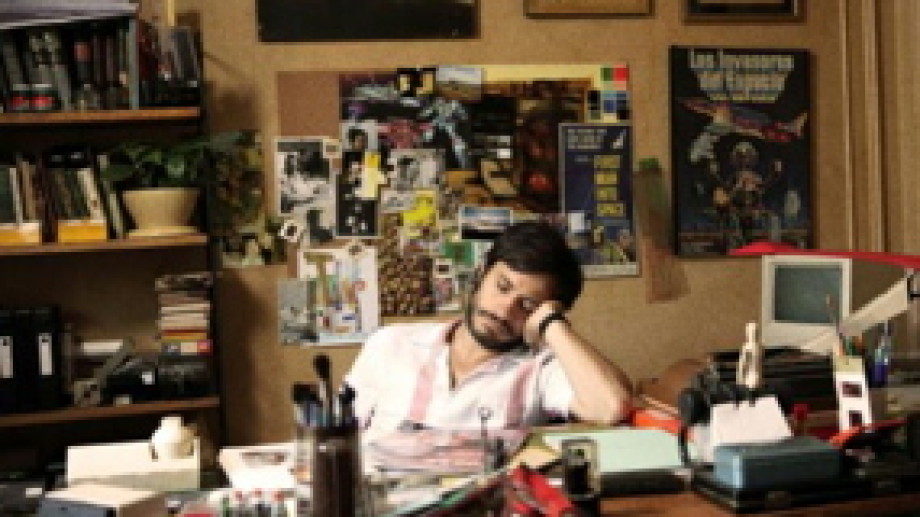
The “NO” Party in Pablo Larraín's No.
Pablo Larraín rewrites history with No. Completing his trilogy about the Pinochet era in Chile, he closes the circle of historical film in the most authentic way possible. After Tony Manero in 2008 and Post Mortem two years later, No is the most notable of these productions. Larraín transports the audience to late-1980's Chile by all means necessary, stylistically and narratively. Dictatorship is a dark part of Chile’s history and Larraín goes against it with humor and the illusions of advertisement.
Set in 1988, Augusto Pinochet (who is in power again after the military putsch against Chile’s first attempt of a democratic leadership with socialist Salvador Allende) decides to agree to a plebiscite due to increasing international pressure. Two campaigns will start: a 'YES' and a 'NO' party. Each of them has fifteen minutes of television time over twenty-seven days. Rene Saavedra (Gael García Bernal), a young and innovative advertising executive, is asked to lead the 'NO' campaign. With a low budget, constant conflict, both internal and external, Rene and his team set up a controversial plan in hope of overcoming tremendous odds and winning this fight.
Augusto Pinochet Ugarte was in power in Chile for 17 years. After the putsch in 1973 an era of disrespect for human dignity followed for the Chilean people. Violence and torture was a daily occurrence but at the same time the dictator presented himself as the saving force of the country. With No, Larraín makes a film not simply about about history but within history. Along with original archive footage, he shot the film in the same format, which stylistically blurs the line between reality and fiction. Pinochet was forced out of office in 1990 by the Chilean people, thus clearing a path for what eventually became a democratic country. A repeated phrase in the film, “the beginning of a new Chile,” is certainly relevant today: Larraín's trilogy can participate in the perception of a suppressed Chile and what it has been able to change since then.

Gael García Bernal in Pablo Larraín's No.
No received striking reactions at the Cannes Film Festival, where it won this year’s Art Cinema Award. The film faces great expectations here in Locarno, where it will be screened in the Piazza with the presence of its star Gael García Bernal on August 8th.
Unlike his previous two films, Larraín includes a Mexican in a cast made up almost exclusively of Chilean actors. Internationally known from Babel and The Motorcycle Diaries, Bernal’s performance in this film is exceptional. The role of a character that is not so different from himself suits him: it is not his country’s history, a sentiment not entirely different from his character, Rene Saavedra, who is less into the political future of Chile, where he only returned recently, than in creating a succeeding campaign. Bernal's acting is not less passionate than that of the Chilean actors, but the passion of his character lays in other situations where Bernal breaks through.
Media had an eminent influence on the distribution of democratic ideas in Chile during the Pinochet era, which was in part brought to an end due the media's political influence. No is also a homage to technical progress. How much the perception of what is on the screen can be influenced, shows the production of the film itself. To achieve the seamless combination of time and space, analog video cameras were used for the film. Reproducing the techniques of twenty years ago but also the story itself depicts reality through illusion. Advertisement is about convincing people by channeling one’s perspective through guided attention. Larrain does exactly that with No.
It is a special achievement to use original footage of violence in a film where also entertainment finds space. The ads provide a sphere in which sociological rules do not count; one can exaggerate and dance, sing and make sexual hints in a space reserved for political actions. Without this, the central thematic aspects of the film would fade. Rene’s heart beats for selling products, not for politics. In this campaign the product is the future of a country, for him only emotionally loaded because of his family situation. The social context he continually refers to is a handy business term, not a view of his own, which doesn't make it less important because Rene has the ability to work with the head and less with the heart. No is still very much a timely film, but its because of films such as this that we are able to both preserve and comment upon history.
Claudia Piwecki lives in Basel, Switzerland, where she is the chief editor of the cultural section of www.semestra.ch, and is enrolled in a Master's program in cultural studies.More dispatches from the Critics Academy participants will be published on FilmLinc.com through the end of the Locarno Film Festival on August 11. Keep watching for their bylines in the coming days!



